Combining promoting democracy and strengthening discipline - an urgent requirement of current Party building and rectification work
The work of Party building and rectification requires the synchronous application of many solutions, in which the combination of promoting democracy and strengthening discipline is an important solution. The necessity of this solution comes from many reasons, specifically as follows:
First, the dialectical relationship between democracy and discipline .
The sustainable development of all political institutions requires ensuring unity between the two aspects of operation: democracy and discipline. There is a truly dialectical relationship between democracy and discipline: “Democracy” contains the element of “discipline” and tends towards discipline; at the same time, “discipline” contains the characteristic of “democracy” and is a condition to ensure the implementation of democracy. If democracy has the profound purpose of promoting the creative capacity of all party members and creating solidarity and consensus among comrades, then discipline and discipline are rules, regulations, and statutes set forth to maintain a strict, self-conscious, and consistent order of the organization. If democracy does not go hand in hand with discipline, it will become “excessive democracy” or “disorganized democracy”; if discipline lacks democracy, it will be despotism and authoritarianism. “Excessive democracy” will create conditions for opportunists and reactionaries to freely do bad things and destroy the organization; harsh and arbitrary discipline will eliminate creativity and cause disunity. Violating the principle of democratic centralism is also violating party discipline because this is the basic organizational principle of the Party. The close combination of democracy and discipline is the condition to ensure the goal of “stability, innovation and development”.
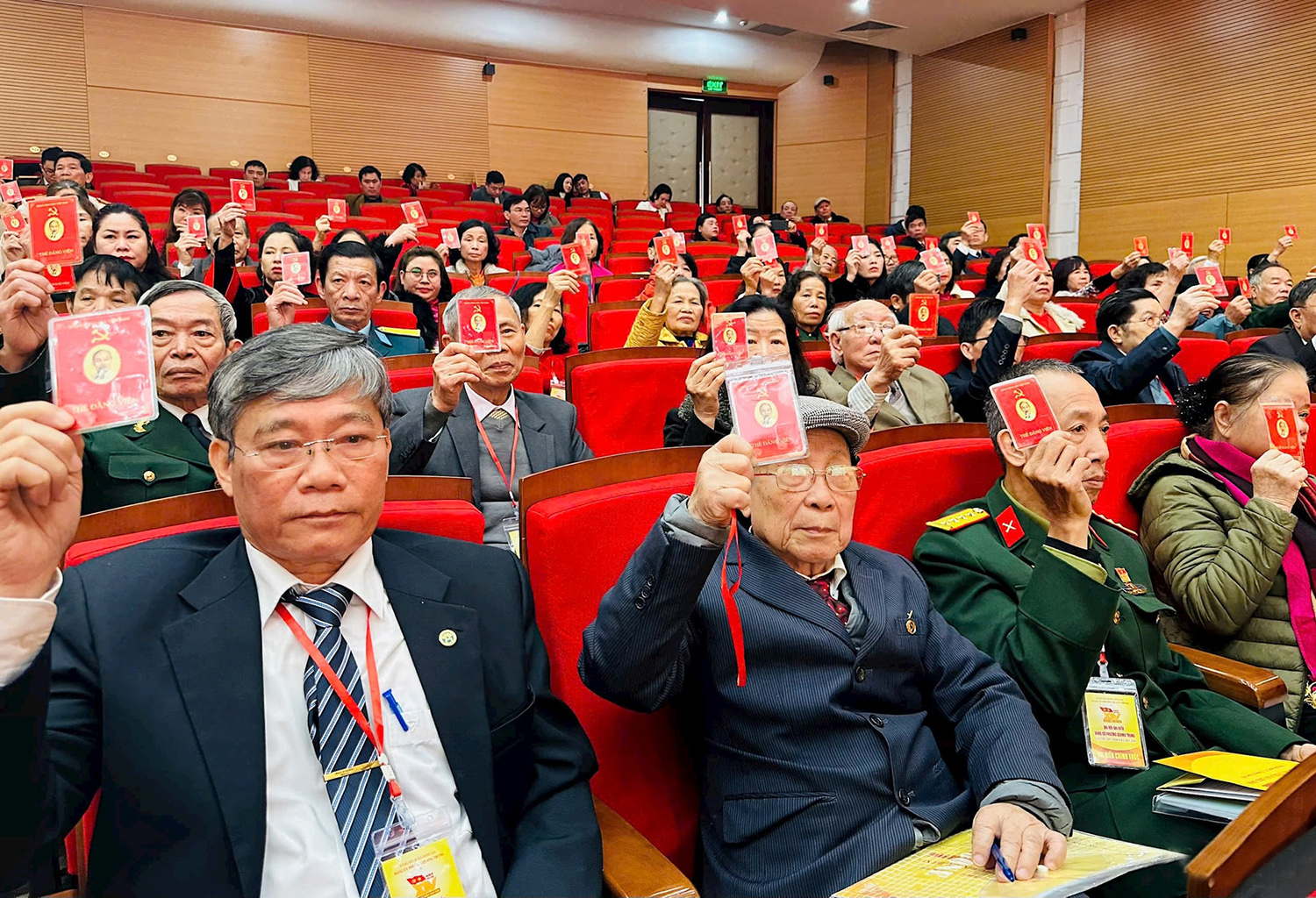
Second, loyalty to the Marxist-Leninist viewpoint on the principles of operation of a new type of party and the relationship between freedom and necessity, rights and obligations of party members.
The strength of a revolutionary party is always linked to the principles of organization and operation of that party. Marxism-Leninism considers democratic centralism as the leading organizational principle, so when establishing the Communist International, VI Lenin emphasized: "Parties joining the Communist International must be built on the principle of democratic centralism " (1) , that is, centralism must be built on the foundation of democracy and democracy must aim at centralized leadership. The classics of Marxism-Leninism also affirmed the dialectical relationship between freedom and necessity , that people only have freedom when they clearly perceive the necessity and act according to the necessity. C. Marx also summarized a truth about the relationship between rights and obligations: "There are no rights without obligations, there are no obligations without rights" (2) . The above-mentioned Marxist-Leninist principles, in essence, all imply an emphasis on the relationship between democracy and discipline, freedom and responsibility, and the rights and obligations of communists. The close combination of promoting democracy and strengthening discipline is the development of those principles in the specific circumstances of Vietnam.
Third, the inheritance of President Ho Chi Minh 's views on the unified relationship between democracy and discipline.
President Ho Chi Minh always emphasized: Democracy means "people are the masters and people are the masters"; " democracy, initiative, enthusiasm , those three things are very related to each other" (3) ; "democracy must be truly practiced within the Party". and in the masses” (4) . Highly valuing democracy, President Ho Chi Minh also affirmed that democracy must be associated with centralism because if one of the two elements is missing, The Party will fall into the “disease” of either excessive freedom, disorganization (below) or authoritarianism, dictatorship, and bureaucracy. He emphasized: “Within the Party, there is broad democracy, and at the same time strict discipline” (5) , and when “the truth is found, then freedom of thought becomes the freedom to obey the truth ” (6) . He also emphasized: “Democracy should not be misunderstood. When a decision has not been made, there is freedom to debate. But once a decision has been made, there should be no more debate. If there is debate, it is only to discuss how to implement it, quickly, not to suggest not to implement it. Such excessive freedom must be banned” (7) .
Fourth, lessons learned from the collapse of socialist regimes in Eastern Europe and the Soviet Union.
In the 80s of the 20th century, when the world entered the trend of globalization and scientific and technological revolution, the Soviet Union showed signs of crisis. M. Gorbachev - General Secretary of the Communist Party of the Soviet Union, a young, progressive leader, proposed a far-reaching reform program called "Reform". The 27th Congress of the Communist Party of the Soviet Union (February 1986) officially approved this policy. However, the reform policy had many mistakes. Political reform took place with the slogans "More democracy", "More openness", but lacking the "brake" of discipline and principles, the more reform became patchy and disoriented. The collapse of the socialist regime in Eastern European countries and the Soviet Union left our Party with a profound lesson: Innovation, but not "changing color or direction" and combining promoting democracy with strengthening discipline is the top principle that the Communist Party must adhere to.
Fifth, it is an important condition for enhancing the Party's strength and leadership to bring the country prosperity and happiness.
History has proven that the correct leadership of the Party is the leading factor determining all victories of the Vietnamese revolution. The late General Secretary Nguyen Phu Trong emphasized: The success or failure of the renovation depends first of all on the correctness of the Party's guidelines, political mettle, leadership capacity and fighting strength" (8) . In April 2024, in the article "Resolving the relationship between practicing democracy and strengthening the rule of law, ensuring social discipline, contributing to the successful implementation of the cause of building and defending the socialist Vietnamese Fatherland", comrade To Lam emphasized: "When established, socialist rule of law will have the power to contribute to establishing order and discipline, promoting and protecting socialist democracy, fighting against all acts of sabotaging the people's mastery, thereby promoting social development" (9) . After nearly 40 years of renovation, our country has never had such a foundation, potential, position and international prestige as it does today, but the deeper the renovation goes, the more new problems appear. The 13th National Party Congress set the goal of building a prosperous and happy country. A prosperous and happy country must be both democratic and disciplined. Moreover, as General Secretary To Lam once affirmed, "the cause of building and defending the Socialist Republic of Vietnam is the cause of all the people, of the entire political system. That cause can only be accomplished when the people are aware of their rights, responsibilities and obligations in the spirit of democracy and the rule of law" (10) . Culture within the Party is the foundation for building culture in society, so practicing democracy and strengthening discipline within the Party must be carried out.
The Party's perception of the relationship between promoting democracy and strengthening discipline in the renovation period and implementation results
When the country fell into a serious socio-economic crisis, with responsibility to the nation, the 6th Party Congress declared to carry out the cause of comprehensive renovation; in which, renovation of the Party's organization and activities was an urgent issue. On the basis of acknowledging weaknesses in implementing democracy and discipline in the Party, the 6th Party Congress determined to carry out two tasks at the same time: both re-establishing discipline and expanding democratic activities in the Party. The 6th Party Congress emphasized: "No leader must put himself outside the organization, giving himself the right to speak and act differently from the collective's decisions... A leader must calmly listen to opinions that are contrary to his own. Different opinions must be expressed completely, frankly, and through democratic discussion to reach the truth" (11) . Faced with the fact that the socialist countries in Eastern Europe carried out reforms under the banner of “Democracy”, but in fact, they were far from the basic principles of Marxism-Leninism, the Resolution of the 6th Central Conference of the 6th term (March 1989) emphasized: “Democracy must go hand in hand with concentration, discipline, law, and a sense of civic responsibility. Democracy must have leadership , leadership to promote democracy in the right direction; on the other hand, it must be led by democratic methods on the basis of promoting democracy” (12) .
The collapse of the socialist regime in the Soviet Union and Eastern European countries was caused by excessive democracy and laxity in discipline, so the 7th Party Congress (1991) drew a lesson: Democracy must have leadership; if we pursue extreme democracy or practice democracy without being associated with discipline and order, without taking into account the specific situation, all good intentions of promoting democracy not only cannot be realized, but also deeply harm the interests of the people. The 8th Party Congress continued to emphasize the task of strictly implementing the principle of democratic centralism and warned: "All unorganized, undisciplined activities, failure to comply with the Party's directives and resolutions, and causing factionalism within the Party must be strictly handled" (13) . The 9th Party Congress emphasized the policy of promoting democracy in all activities and work of the Party; At the same time, it affirmed: “Party members have the right to reserve their opinions but must speak and act according to the Party’s resolutions. Oppose formal democracy, extreme democracy or exploit democracy to seek personal, local, and selfish interests” (14) . At the 10th Congress, the Party clearly stated the rights and responsibilities of Party members in linking democracy with discipline: “All cadres and Party members have the right to participate in deciding on Party work; the right to be informed, discuss, debate, express their own opinions, and reserve opinions within the organization; when the Party has a resolution, they must speak and act according to the resolution. Leaders at all levels must listen to the opinions of subordinates, Party members, and the people” (15) . The 11th Party Congress emphasized the need to truly promote democracy in Party activities, strictly maintain Party discipline, and properly implement the principle of democratic centralism. The Party clearly recognizes that the "disease" of formal democracy, bureaucratic centralism or disorganization and lack of discipline still exists in some places and at some times, along with its dangers. The 12th Party Congress has a new viewpoint of linking democracy and discipline with social ethics. This supplement is extremely necessary because laws and discipline, no matter how detailed, cannot cover all issues of social life; it is necessary to use social ethics as a means of criticism, contributing to preventing wrongdoing, badness and evil. Moreover, only when revolutionary ethics are strong will the Party's discipline and the State's laws be strict and democracy will become real. Also at the 12th Party Congress, for the first time, the "power control mechanism" was mentioned with the aim of preventing abuse of power and violations of the principles of democratic centralism, discipline and order. By the 13th Party Congress, the Party had raised the relationship between practicing democracy and strengthening the rule of law, ensuring social discipline. become the 10th major relationship. This is one of the major relationships, reflecting the dialectical laws, the core theoretical issues of our Party's innovation policy. Fully aware that there is always a gap between perception, consciousness and action and that democracy and discipline are only valuable when they are implemented in practice, the 13th National Party Congress emphasized: "Practicing democracy in the Party is closely linked to strengthening the Party's discipline and order" (16) . Practicing democracy is organizing and implementing democracy in practice so that each Party member can promote his or her role and exercise his or her rights and responsibilities. Practicing democracy has demonstrated the Party's determination to promote democracy as a core value of the socialist political regime. Thus, along with the innovation process, the Party's awareness of the inseparable relationship between democracy and order in society has become increasingly deeper.
Guided by increasingly perfect theories, the implementation of democracy and discipline has achieved some successes. There are many evidences for the expansion of democracy: Draft documents of the 11th, 12th, and 13th National Party Congresses have been widely consulted among Party members and the people; the process of cadre work has become increasingly public; Party cell activities have also been innovated in the direction of enhancing discussion and debate; questioning and voting for leadership and management positions in the political system have been carried out...
To strengthen discipline and order, many directives, resolutions and regulations on inspection and control of cadres and party members, combating the abuse of power and positions, and strictly handling cadres and party members who violate discipline have been issued and seriously implemented. The fight against corruption and negativity has been carried out according to the principle of "no forbidden areas" and "no exceptions" and has achieved remarkable results.
However, for many reasons, there are still places and times where there is a lack of democracy and a lack of discipline. Former General Secretary Nguyen Van Linh once emphasized: “From a lack of democracy to formal democracy, the situation is not any better. Lack of democracy or formal democracy weakens the centralization, unity, and discipline, and discipline is not strict” (17) . Currently, the “disease” of formal democracy still exists in some places and at some times. That is, the giving of opinions, studying, and implementing resolutions or related documents in party organizations in some places and at some times is still perfunctory. Theoretical work sometimes falls into a state of only explaining and propagating one-way resolutions and policies; criticism of policies or proposals for new ideas is still very limited. Self-criticism and criticism have not been put into practice because of fear of criticizing superiors, or criticism is conducted in a “easy on others, easy on us” style, “fake on the surface, not in the heart”. In personnel work, there is still a situation of "following the right procedures, but not the right people"; the problem of "buying positions and power" still exists in a very sophisticated and painful way...
It is also the "disease" of formal democracy that has sometimes and in some places making “centralization” turn into bureaucracy, dictatorship, and authoritarianism. Some leaders of Party committees have abused their power to neutralize the collective. They make decisions based on their personal will and ambition, but always in the name of the collective and for the common good. In reality, many high-ranking officials under the management of the Central Executive Committee, the Politburo, and the Secretariat have been subject to party discipline and criminal prosecution. seriously violated the principle of democratic centralism. Inspection and supervision work, although strengthened and innovated, still does not fully meet the requirements of cleaning up the Party organization, because the prevention mechanism is not really effective. Self-inspection, proactive detection and strict handling of violations by many Party committees and organizations are still weak links. Disciplinary enforcement in some places, especially at the grassroots level, is not strict; here and there are still phenomena of cover-up and favoritism. The coordination between the inspection committee and relevant agencies, such as the inspection, audit, police, procuracy, court... is sometimes not tight. According to General Secretary To Lam, "resolving well the relationship between practicing democracy and strengthening the rule of law, ensuring social discipline will contribute effectively to the cause of building and defending the Fatherland" (18) , so this is something that must be done very well.
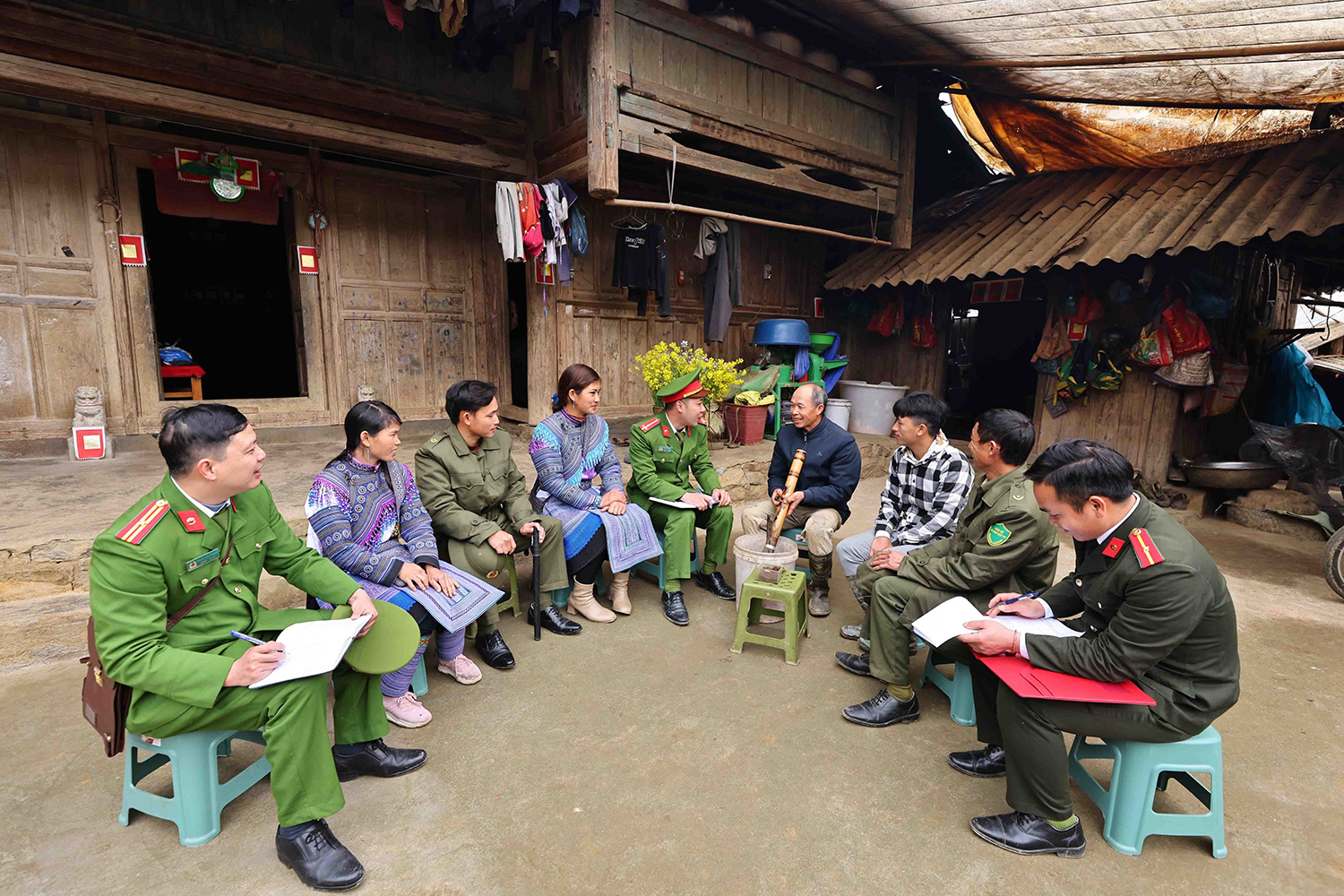
Solutions to promote the combination of democratic practice and strengthening discipline today
To spread democracy and discipline in party organizations and party members, it is necessary to focus on implementing the following system of solutions:
Firstly, raise awareness of the entire political system about the dialectical relationship between promoting democracy and strengthening discipline. Due to the Party's pioneering and exemplary role before the nation, all Party members must unanimously build a democratic culture; at the same time, voluntarily "do only what the law allows". At this time, it is necessary to do a good job of theoretical education so that all cadres and Party members can grasp the nature, content, and methods of practicing democracy and strengthen the legal system and discipline in a way that is appropriate to the current stage and assigned tasks. Cadres and Party members must deeply understand that practicing discipline is both an obligation and responsibility, and is also very important to themselves, because it ensures their legal safety and political life. In addition, practicing democracy associated with strengthening discipline and order is aimed at building a clean and strong Party in all five areas (politics, ideology, ethics, organization, and cadres), not simply strengthening the Party organizationally.
Second, promote the exemplary role of Party members, especially leaders. Our Party and President Ho Chi Minh always consider the exemplary and pioneering role of Party members as a leadership method of the Party, so the 13th National Party Congress required: "Party committees, Party organizations, organizations in the political system, Party members, cadres, civil servants, and public employees must set an example in practicing democracy, complying with the law, and upholding social ethics" (19) . Leaders are a special human resource, the heads of organizations; therefore, their practice of democracy and compliance with discipline greatly determine the effectiveness of implementing democracy and discipline.
Third, step up the inspection of the practice of democracy and strengthen discipline. Inspection and supervision are both the content of leadership and a method of leadership of the Party. Violations in the practice of democracy and discipline will be prevented if inspection work is done well and done early. Therefore, it is necessary to identify the key content in inspection and supervision. Innovate methods, processes and skills of inspection work to ensure objectivity, democracy, publicity, unity and accuracy. Build a team of Party inspection cadres with political courage, professional expertise, ethics and the ability to attract people to participate in supervising the practice of democracy and discipline. At the same time, to improve discipline, it is necessary to prevent and combat negativity in anti-negativity agencies. In addition, inspection work must go hand in hand with strict reward and discipline work.
Fourth, promote the work of summarizing the practice of democracy and discipline .
Practicing democracy and controlling power in a single-party system requires promoting initiative, creativity, and enhancing the sense of responsibility of each level and each sector in conjunction with the mechanism of controlling power. This requires attention to summarizing the practice of democracy and discipline, contributing to summarizing and drawing experiences, and elevating the practice of democracy and discipline into theory to continue to guide reality.
Fifth, practice and promote socialist democracy widely; expanding democracy must be associated with maintaining discipline and order . Karl Marx said very correctly that if people are products of circumstances, then circumstances must be made more and more human. President Ho Chi Minh once emphasized, “Our Party did not fall from the sky. It comes from society” (20) . Along with the development of society, democracy and order are increasingly becoming the core characteristics of a civilized society; the goal of political innovation in our country is to build socialist democracy; therefore, promoting democracy and order in society will help the implementation of democracy and order to be more effective and sustainable./.
--------------
(1) VI Lenin: Complete Works , National Political Publishing House, Hanoi, 2006, vol. 41, p. 253
(2) C. Marx and F. Engels: Complete Works , National Political Publishing House Truth, Hanoi, 1994, vol. 16, p. 25
(3) Ho Chi Minh: Complete Works , National Political Publishing House Truth, Hanoi, 2011, vol. 5, p. 284
(4) Ho Chi Minh: Complete Works, op. cit. , vol. 8, p. 380
(5), (6) Ho Chi Minh: Complete Works, op. cit. , vol. 10, pp. 456, 378
(7) Ho Chi Minh: Complete Works , op. cit. , vol. 6, pp. 457 – 458
(8) Nguyen Phu Trong: Some theoretical and practical issues on socialism and the path to socialism in Vietnam , National Political Publishing House Truth, Hanoi, 2022, pp. 35 - 36
(9), (10) To Lam: "Resolving the relationship between practicing democracy and strengthening the rule of law, ensuring social discipline, contributing to the successful implementation of the cause of building and defending the socialist Vietnamese Fatherland", Communist Magazine , No. 1,036 (April 2024), p. 6
(11) Complete Party Documents , National Political Publishing House, Hanoi, 2006, vol. 47, pp. 470 - 471
(12) Complete Party Documents , op. cit., vol. 49, p. 592
(13) Complete Party Documents , ibid., 2015, vol. 55, pp. 418 - 419
(14) Complete Party Documents , op. cit., 2016, vol. 60, p. 226
(15) Complete Party Documents , ibid., 2018, vol. 65, p. 226
(16) Documents of the 13th National Congress of Delegates , National Political Publishing House Truth, Hanoi, 2021, vol. I, p. 181
(17) Complete Party Documents , op. cit ., vol. 49, p. 251
(18) To Lam: "Resolving the relationship between practicing democracy and strengthening the rule of law, ensuring social discipline, contributing to the successful implementation of the cause of building and defending the socialist Vietnamese Fatherland", Tlđd , p. 6
(19) Documents of the 13th National Congress of Delegates , op. cit ., vol. I, p. 173
(20) Ho Chi Minh: Complete Works, op. cit. , vol. 5, p. 303
Source: https://tapchicongsan.org.vn/web/guest/nghien-cu/-/2018/1065202/ket-hop-phat-huy-dan-chu-va-tang-cuong-ky-cuong---giai-phap-quan-trong-cho-cong-toc-xay-dung%2C-chinh-don-dang-hien-nay.aspx



![[Photo] Party and State leaders attend the special art program "You are Ho Chi Minh"](https://vphoto.vietnam.vn/thumb/1200x675/vietnam/resource/IMAGE/2025/5/18/6895913f94fd4c51aa4564ab14c3f250)


![[Photo] Special flag-raising ceremony to celebrate the 135th birthday of President Ho Chi Minh](https://vphoto.vietnam.vn/thumb/1200x675/vietnam/resource/IMAGE/2025/5/19/1c5ec80249cc4ef3a5226e366e7e58f1)
![[Photo] Party and State leaders visit President Ho Chi Minh's Mausoleum](https://vphoto.vietnam.vn/thumb/1200x675/vietnam/resource/IMAGE/2025/5/19/d7e02f242af84752902b22a7208674ac)


![[Video] Uncle Ho promotes sense of responsibility](https://vphoto.vietnam.vn/thumb/402x226/vietnam/resource/IMAGE/2025/5/19/02e981b562be43978d802d1d548d98e4)


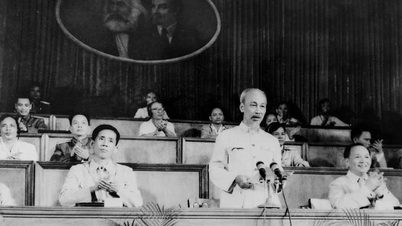

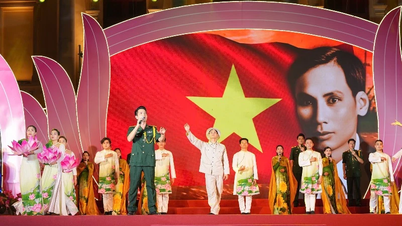
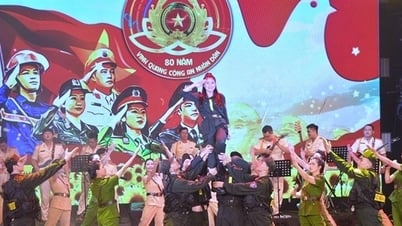






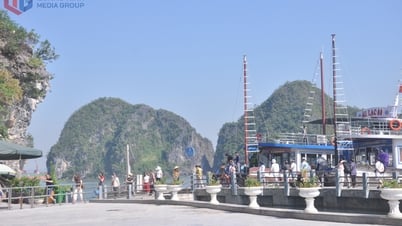
















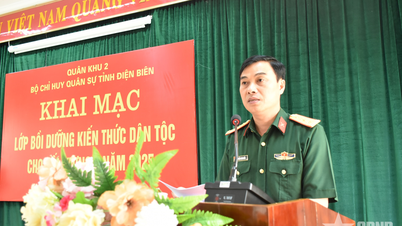





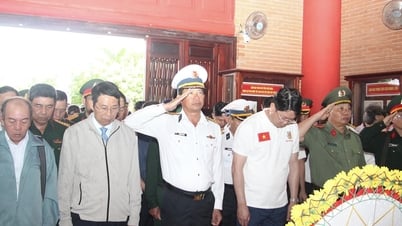



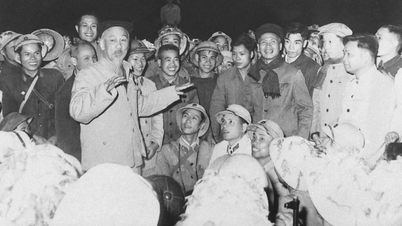

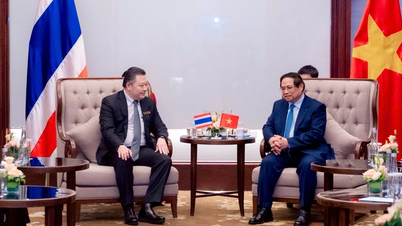




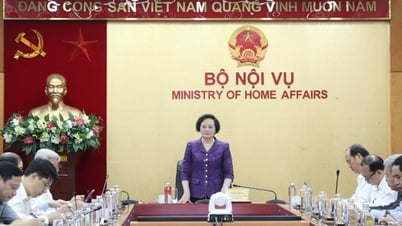

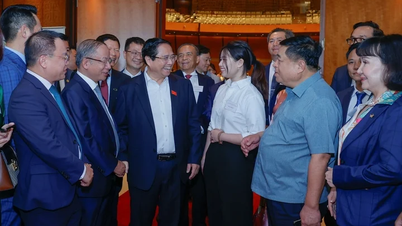



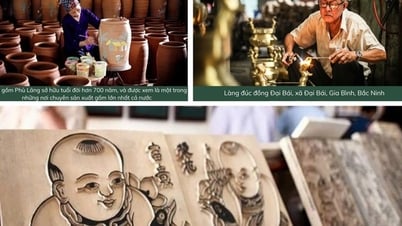
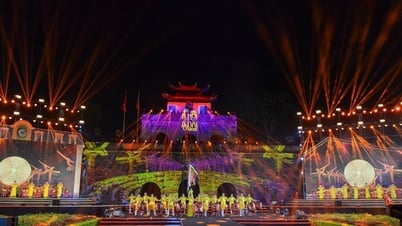
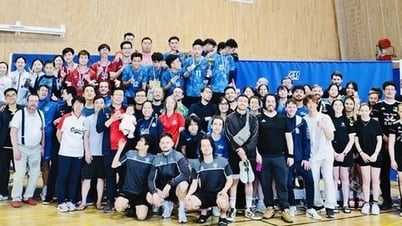

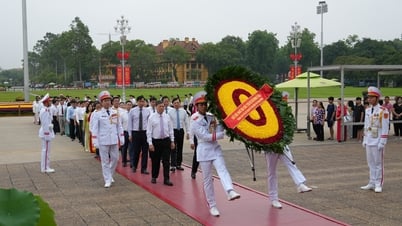



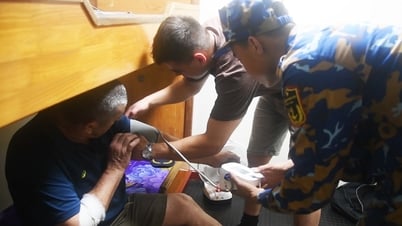



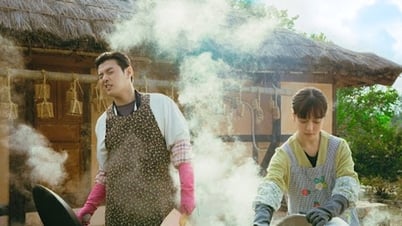

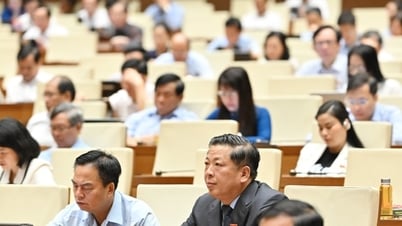










Comment (0)